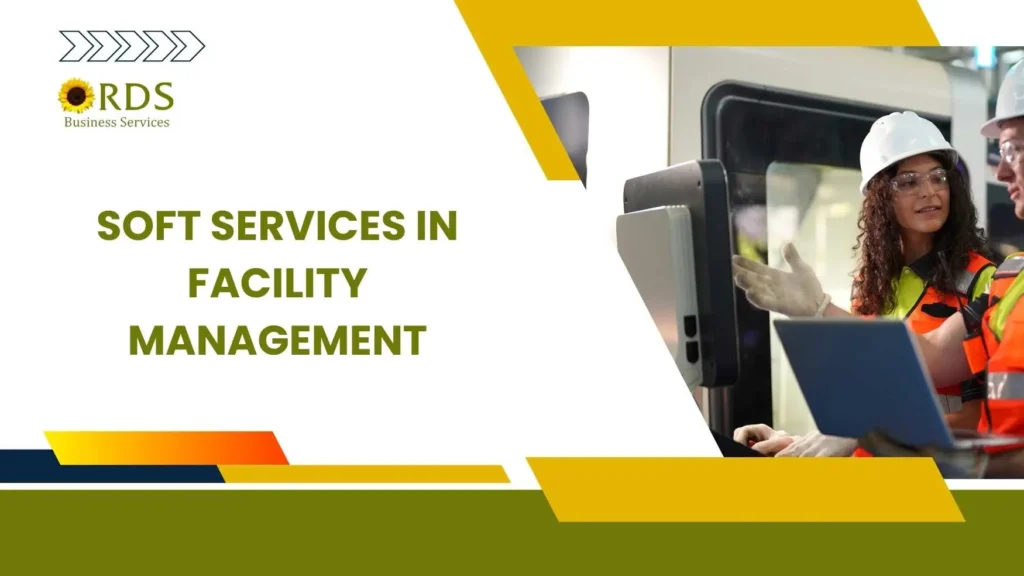Table of Contents
As businesses strive for greater operational efficiency, cost reduction, and improved service quality, more and more enterprises are turning to Integrated Facility Management (IFM). This approach consolidates various facility-related services under one unified management system, offering businesses a streamlined solution. But what exactly makes IFM so beneficial for organizations, and why is it becoming an essential service for companies, especially in Chennai? In this blog, we will delve into the advantages of IFM, the emerging trends, and its growing importance in today’s corporate landscape.
What is Integrated Facility Management?
Integrated Facility Management (IFM) is a comprehensive approach that merges all the functions of facility management into a single, streamlined service. It aims to provide a more efficient and cost-effective way to maintain the operations of a building or facility. Facility management encompasses a wide range of services, from maintenance to cleaning, security, and even energy management. When these services are integrated into one cohesive solution, businesses can enjoy better coordination, improved service delivery, and reduced operational costs.
Think of it as a one-stop shop for all your facility needs. Instead of dealing with multiple vendors for each service, businesses can now rely on a single service provider to handle everything related to building maintenance. This not only simplifies operations but also ensures that all aspects of facility management are aligned toward achieving the same organizational goals.
The Rise of Integrated Facility Management in Enterprises
In the past, businesses often relied on individual service providers for each aspect of facility management. A company might have a separate provider for cleaning, another for security, and yet another for HVAC maintenance. However, this fragmented approach often led to inefficiencies, high costs, and difficulties in communication between service providers.
As businesses grew and their needs became more complex, the demand for a more coordinated approach to facility management arose. Integrated Facility Management emerged as the solution. By combining all these services into one package, IFM allowed businesses to reduce the complexity of managing various vendors while ensuring that all services were delivered in a coordinated manner. Today, more and more enterprises are adopting this approach, especially in metropolitan areas like Chennai, where the demand for effective facility management services is high.
Key Benefits of Integrated Facility Management for Enterprises
1. Cost Efficiency
One of the most significant advantages of IFM is the potential for cost savings. By consolidating multiple services under one provider, enterprises can negotiate better rates and avoid paying for duplicate services. This also eliminates the need for businesses to manage multiple contracts, reducing administrative costs and overheads.
Moreover, an integrated approach allows for the efficient use of resources. For example, a single service provider can schedule maintenance or cleaning at times that optimize the use of staff and equipment, preventing unnecessary downtime and maximizing productivity.
2. Improved Operational Efficiency
When services are integrated, there is better coordination between various functions. For instance, the same team that manages the building’s security can also coordinate with maintenance staff to ensure that any security-related issues are addressed promptly. This seamless communication ensures that problems are solved quickly, preventing delays and reducing the risk of operational disruptions.
In addition, an integrated facility management solution offers real-time monitoring and reporting, making it easier to track performance metrics and identify areas for improvement. This data-driven approach helps enterprises make informed decisions and continuously optimize their operations.
3. Enhanced Focus on Core Business
By outsourcing facility management to an integrated provider, enterprises can free up their internal resources to focus on core business activities. This allows businesses to concentrate on their primary goals—whether that’s growing the customer base, improving product quality, or expanding into new markets—without the distraction of managing day-to-day facility operations.
4. Better Risk Management
Effective risk management is a vital part of any business strategy. Integrated Facility Management helps enterprises identify and mitigate potential risks related to building maintenance, security, and other areas. By ensuring regular inspections and proactive maintenance, IFM providers can prevent issues before they escalate, reducing the likelihood of costly repairs or safety incidents.
5. Sustainability and Energy Efficiency
In today’s world, sustainability is more important than ever. Integrated Facility Management services can help enterprises reduce their carbon footprint by implementing energy-efficient solutions. From optimizing HVAC systems to using eco-friendly cleaning products, IFM providers can help companies adopt sustainable practices that not only benefit the environment but also reduce utility costs.
Trends Shaping Integrated Facility Management in Enterprises
1. Technology Integration
The role of technology in Integrated Facility Management cannot be overstated. With the rise of smart buildings and the Internet of Things (IoT), IFM providers are increasingly using technology to monitor building systems in real time. This allows for predictive maintenance, where potential issues are identified before they cause a system failure, saving businesses money and preventing downtime.
Moreover, technology is enabling the automation of various facility management tasks. For example, automated lighting and temperature control systems can reduce energy consumption, while AI-powered security systems can provide more effective surveillance.
2. Outsourcing Facility Management Services
Outsourcing facility management is becoming increasingly common, especially for enterprises that want to focus on their core competencies. Instead of managing multiple vendors, businesses are turning to integrated facility management services in Chennai and other cities for a more streamlined approach. These outsourcing solutions are scalable, flexible, and cost-effective, making them an attractive option for businesses of all sizes.
3. Focus on Employee Well-being
In today’s competitive job market, companies are increasingly focused on improving employee well-being. Integrated Facility Management plays a significant role in this by ensuring that the workplace is clean, safe, and comfortable. By maintaining proper ventilation, ensuring hygiene, and providing a secure environment, IFM services contribute to a healthier and more productive workforce.
Why Integrated Facility Management is Essential for Enterprises in Chennai
Chennai, as one of India’s largest business hubs, is home to numerous enterprises across various industries. The city’s rapid growth has led to an increased demand for effective facility management services. Integrated Facility Management in Chennai is particularly important for businesses that want to streamline their operations, reduce costs, and ensure sustainability.
With the growing need for professional facility management solutions, businesses in Chennai are turning to integrated providers to keep their buildings running smoothly. From large IT campuses to commercial office spaces and residential complexes, IFM solutions are helping businesses optimize their facility operations and improve overall efficiency.
Facility Management Services in Chennai: A Growing Need
Chennai has long been a center of industry and commerce, and its infrastructure continues to expand. This growth has led to a greater need for facility management services in the city. Companies that operate in sectors like IT, manufacturing, and retail require efficient facility management to maintain their properties and ensure smooth operations.
Integrated facility management services in Chennai are becoming more popular, as businesses seek a more comprehensive and streamlined approach to managing their facilities. From energy management to security and cleaning, these services provide everything businesses need to keep their properties in top shape.
Facility Management Solutions for Every Industry
Whether you run an office, a hospital, a factory, or a retail store, integrated facility management services can be tailored to meet the specific needs of your industry. The flexibility of IFM allows businesses to customize their service packages, ensuring that all aspects of facility management are covered without unnecessary services that add costs.
Conclusion:
Integrated Facility Management (IFM) is no longer a luxury for businesses, it’s a necessity. At RDS Business Services, our IFM solutions offer efficient and cost-effective ways to streamline operations, reduce expenses, and allow businesses to focus on their core activities. As trends like technology integration and sustainability shape the future of facility management, companies that partner with RDS Business Services will be well-positioned to succeed in a competitive market.







